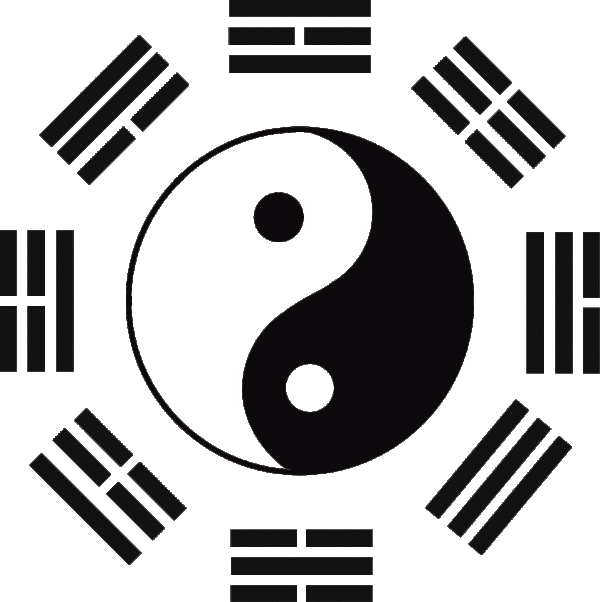The world is increasingly complicated. This increased complexity is not helped by the fact that people are less aware of simple principles and simple practices. Simplicity is often overlooked, and yet simplicity is exactly the thing that tends to be effortlessly helpful and near endlessly applicable in situations of complexity. Complexity normally has limited applicability, while simplicity normally has unlimited applicability.
Complex principles and practices are as difficult to stand on as clouds and tend to result in clouded situations instead of clarity. Simple principles and practices, on the other hand, provide a great base to develop on, near endlessly. Complexity is often pursued because in the design of the status quo, complex practices and principles offer a quick means to ends, a way to win money.
The results of complex pursuits are complex problems. Simple pursuits do not result in complex problems. It's not simplicity that blossoms from complexity, only more complexity. Simplicity blossoms from simplicity, as does our potential ability to solve complex problems.
The unsustainable status quo of humanity is illustrated in the allegory of the islander who leaves home. The proverbial 'go-getter' islander leaves home aiming to gain enough money to purchase an island home but when he finally returns, the island has changed due to aggregate complexity. His island is no longer the same. Simplicity would have been remaining on the island or going to a different island to find work and a home there.
Why Do We Prefer Complexity?Simply put, because complexity is more profitable than simplicity.
All too frequently simplicity is overlooked because the most profitable pursuits in an unsustainable world are complicated. Simplicity is often an intangible quality, whereas complexity yields mostly tangible quantities. This distinction makes complexity a preferable pursuit to win money. Many also find it preferable to stay busy with quantifying things, rather than performing sometimes uncomfortable qualitative inner work.
Sometimes complexity is preferred because complexity profits, and sometimes complexity is preferred because it is a distraction, a way to keep our attention on obtaining stuff rather than paying attention to our own inner stuff, rather than performing the difficult duty of performing the great work; the inner work.
This has resulted in many sensible systems, ideas, truth and fairness, and even the ability to obtain clean water on whole continents, being left behind in favor of complex profitable means with complex and dire results.
Truth and Fairness Suffer Under ComplexityTruth and fairness have been removed and shifted in order to uphold the profitability of various complexities globally. Sometimes we learn about these transgressions of truth and fairness, sometimes we do not, even though we are living through their consequence. The energy oligarchies and related institutions are among the most obviously guilty of gross lying about destructive actions with endless complex consequences.
Truth and fairness are generally overlooked in relation to gaining means towards ends. People will boldly exclaim that they are conducting their business for profit. Hardly any proclaim their pursuit of truth and fairness. We, collectively, presume most all other institutional functions are formed in order to profit, truth and fairness be damned. And it is apparent, clean water be damned. In fact, we have allowed some of the most preposterous greedy pursuits to infiltrate the institutions we trust with our maintenance, healing, and social development worldwide.
How Complexity Subdues IndividualityThe majority prefer complexity and artificiality due to bureaucratic training. We end up institutionalized, in one form of survival mode or another, where questioning beyond the status quo is outside our scope. Seeking individuation or self-development is hardly considered. Most prefer not to think much and not to think much differently than the majority. The impulse to not think much and not think much differently are institutionally pushed from Beijing to London. Alternative and critical thinking has been continuously subtly punished, and is increasingly overtly punished. We are institutionalized to the point where we accept systems of individual detriment in order to progress institutional development. This is evidence of how we have been manipulated. This thinking must be removed for our collective good.
"Empty your cup so that it may be filled; become devoid to gain totality." ~ Bruce Lee
To not question and not reason goes against our true nature. Asking 'why' repeatedly and near obsessively is perhaps distinct in human nature. It is our first impulse when we first are capable of communication. Following complexity and artificiality without question requires us to have been immersed in it to the point that we do not notice what is around us. Institutionalization rather than individuation damages and degrades the psyche to the point we do not observe self nor surroundings.
In this increasingly complex world we are trained to not consider, to not reason, and to not seek truth. We are further repetitively steered to think not as individuals, but as institutions, and perform all sorts of work which builds institutions, and not our own individuation.
Humanity's Inhumanity Arises from ComplexityThere are many ways humanity is steered to be inhumane, but a large portion of it all can be understood as the removal of, or distortion of, simplicity. If we stand on simple principles we are not so easily steered off base. When we know a few simple practices we are not so easily tricked with proverbial carrots on strings. If on the other hand we are immersed in complexity without principled roots and steady development practices, we easily topple to the winds of institutional and artificial influences.
(Note: You can view every article as one long page if you sign up as an Advocate Member, or higher).






